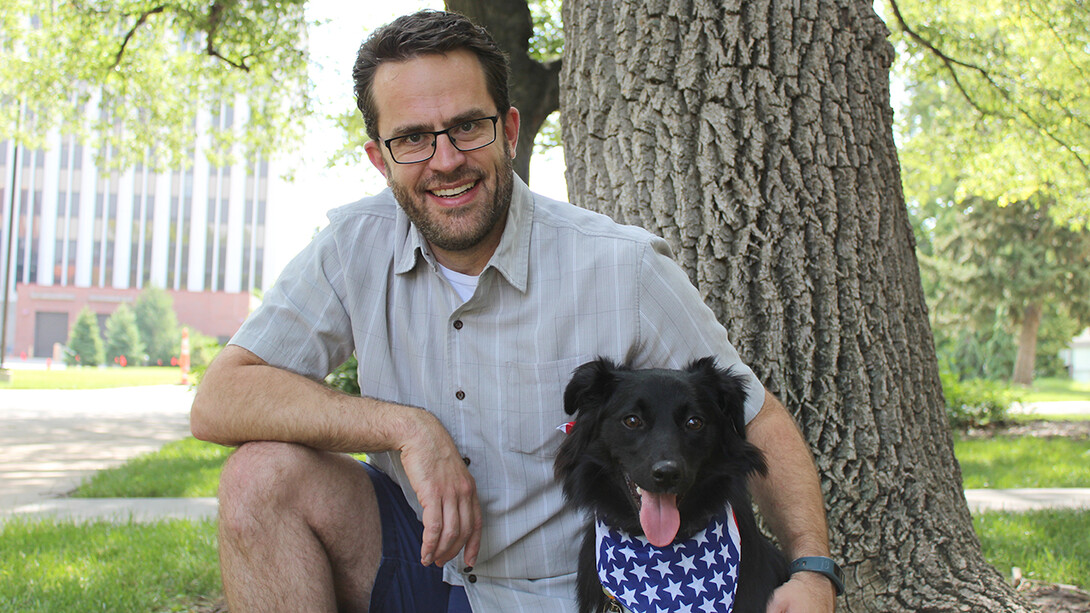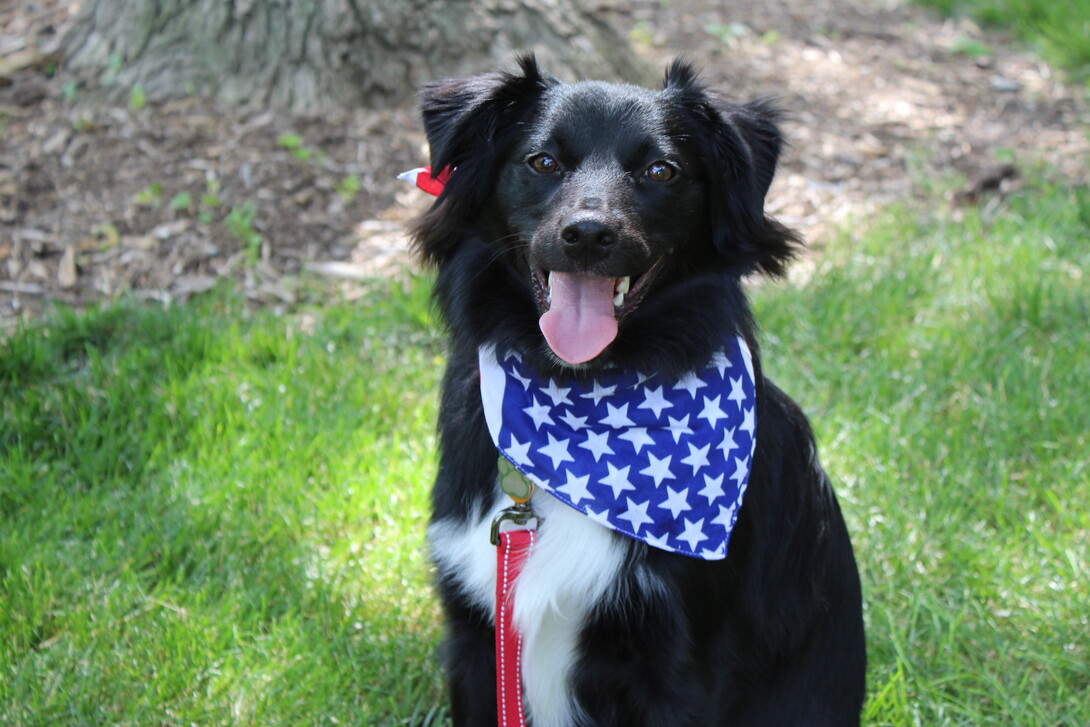
Most Americans look forward to the Fourth of July as a time of rest and relaxation.
For dog owners and their furry friends, however, it can also be one of the most stressful days of the year.
Jeffrey Stevens, associate professor of psychology and founder of the Canine Cognition and Human Interaction Lab at the University of Nebraska-Lincoln, is one of campus' resident dog experts. He’s spent the past year studying the psychology of pups and their owners, including specific subsets of behavior like impulsivity and separation anxiety.
Stevens said that while some dogs are unbothered by fireworks on the Fourth, the overwhelming sounds can be too much for others.
“There have been some studies of owners that suggest a good number, between one-third and one-half of dogs, experience some kind of anxiety or reaction to loud noises on the Fourth. It’s definitely very common,” Stevens said.

He also offered several tips for dog owners ahead of the upcoming holiday.
“One of the best things to do is what’s called desensitization training, which is what it sounds like – you desensitize them to the sounds,” Stevens said.
“There actually are files you can download that are built for this. You play them through your stereo at a low volume, and you reward the dog when they don’t respond. Then, you gradually turn the volume up until it’s fairly loud.”
While desensitization training requires a bit more preparation and time commitment from the owner, Stevens also presented some easier methods to implement the day of the Fourth.
“Another strategy that seems to be effective, according to owner reports, is having treats and food and playing with the dog during the fireworks so they stay distracted,” Stevens said. “Some people suggest playing calming music during that.”
Finally, Stevens noted that the Fourth of July is the day that more dogs run away from home than any other day of the year. To be prepared for this scary scenario, it’s a good idea that owners have their dogs microchipped or easily identifiable through a collar and tags.
Since its opening last summer, around 70 dogs have been studied at the Canine Cognition and Human Interaction Lab. The dogs are tested with treats while researchers record their decision-making and cognition, and their owners are tested separately to see how interaction with their pets affects own behavior as well.
As the lab rolls into its second year, Stevens will once again host Husker DogFest — a free event offering demonstrations, tours and dog-centric activities —from 10 a.m. to 2 p.m. Sept. 21.
Owners interested in participating in the lab can learn more or enroll here.







